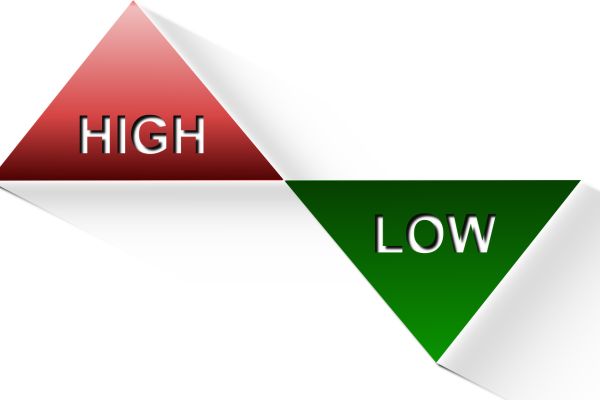Pursuing higher education can be an exciting yet expensive endeavour. Many students and their families rely on student loans to bridge the financial gap and make college dreams a reality. However, not all student loans are created equal, and finding the ones with the lowest interest rates is crucial for minimizing long-term financial burdens. In this article, we’ll explore some of the best student loans with the lowest interest rates available, their benefits, and how they can help students and families manage the cost of higher education.
Best Student Loans With Lowest Interest Rates
Before diving into specific loans, it’s essential to understand the two primary types of student loans: federal and private. Federal student loans are issued by the U.S. Department of Education and generally offer lower interest rates, more flexible repayment options, and certain protections that private loans do not provide. Private student loans, on the other hand, are offered by private lenders such as banks, credit unions, and online financial institutions. They can sometimes offer competitive interest rates, especially to borrowers with strong credit histories or co-signers.
Benefits of Low-Interest Student Loans
Low-interest student loans can significantly reduce the cost of borrowing over time. Here are some key benefits:
- Lower Monthly Payments: A lower interest rate means a smaller portion of your monthly payment goes toward interest, allowing you to pay off your loan faster and with less financial strain.
- Reduced Total Loan Cost: Over the life of the loan, a lower interest rate can save you thousands of dollars in interest payments, making your education more affordable in the long run.
- Better Financial Flexibility: With lower payments, you’ll have more flexibility in your budget to save, invest, or spend on other necessities, such as housing or transportation.
Now, let’s look at some of the best student loans with the lowest interest rates currently available.
Federal Direct Subsidized Loans
Federal Direct Subsidized Loans are among the best options for undergraduate students with financial needs. These loans do not accrue interest while the student is in school at least half-time, during the grace period, or deferment periods. The interest rate for these loans is often lower than private loan options, and because they’re subsidized, they can save you a significant amount of money in interest charges over time.
Federal Direct Unsubsidized Loans
Federal Direct Unsubsidized Loans are available to both undergraduate and graduate students, regardless of financial need. While the interest rate is slightly higher than that of subsidized loans, these loans still offer competitive rates compared to many private options. Interest begins to accrue from the moment the loan is disbursed, but these loans have flexible repayment options and are eligible for income-driven repayment plans, making them an excellent choice for students who need additional funding.
Federal Direct PLUS Loans
Federal Direct PLUS Loans are available to graduate or professional students and parents of dependent undergraduate students. These loans have a higher interest rate compared to Direct Subsidized and Unsubsidized Loans, but they can still be a good option for families who need to borrow beyond the federal loan limits. PLUS loans require a credit check, so having a good credit history is important. Despite the higher interest rate, these loans offer some protections and repayment options not available with private loans.
Sallie Mae Smart Option Student Loan
The Sallie Mae Smart Option Student Loan is a popular private loan choice for students who need to cover educational costs not met by federal loans. Sallie Mae offers competitive variable and fixed interest rates, depending on the borrower’s creditworthiness and other factors. One of the notable features of this loan is the option to make interest-only payments while in school, which can help reduce the total cost of the loan.
SoFi Private Student Loan
SoFi is well-known for its refinancing options, but it also offers private student loans with low interest rates for undergraduate and graduate students. SoFi provides competitive fixed and variable rates, and there are no fees for origination, application, or prepayment. Borrowers with a good credit score or a creditworthy co-signer can secure some of the lowest rates available. SoFi also offers benefits like career coaching and unemployment protection, making it an attractive choice for many students.
Discover Undergraduate and Graduate Student Loans
Discover offers private student loans with competitive interest rates for both undergraduate and graduate students. They have a range of repayment options, including in-school and deferred payment choices, allowing students to choose what works best for their financial situation. Discover’s loans come with no origination or late fees, and they offer a cash reward for good grades, which can be a motivating factor for students.
College Ave Student Loans
College Ave offers a variety of private student loan options with flexible repayment terms and competitive interest rates. They provide loans for undergraduate, graduate, and parent borrowers, with fixed and variable rate options. College Ave is known for its user-friendly application process and quick credit decision. They also offer the option to defer payments while in school or make interest-only payments to help manage the cost of borrowing.
Earnest Private Student Loan
Earnest is a newer player in the student loan market but has quickly gained a reputation for offering some of the best rates and terms. They offer private student loans with no fees, and they allow borrowers to choose their repayment terms between 5 and 15 years, giving them more control over their financial future. Earnest also offers competitive fixed and variable interest rates and a unique Precision Pricing model that allows borrowers to choose a monthly payment amount that fits their budget.
Citizens Bank Student Loan
Citizens Bank offers private student loans with competitive interest rates and a range of repayment options. They offer loans for undergraduate, graduate, and parent borrowers, with no application, origination, or disbursement fees. Citizens Bank also provides a multi-year approval feature, allowing students to secure funding for future years without reapplying, as long as they meet certain credit requirements. This can save time and potentially lock in a lower interest rate.
Ascent Independent and Co-Signed Student Loans
Ascent offers two types of student loans: a credit-based co-signed loan and a non-co-signed loan that considers factors like school attendance and future income potential. The co-signed option provides lower interest rates, while the non-co-signed loan offers an alternative for students who may not have access to a creditworthy co-signer. Ascent’s loans come with no application fees, flexible repayment options, and a 1% cash-back reward upon graduation.
Factors Affecting Student Loan Interest Rates
While exploring student loans with the lowest interest rates, it’s essential to understand the factors that influence these rates. Several key elements can determine the interest rate you’re offered:
1. Credit Score
For private student loans, your credit score is one of the most significant factors affecting the interest rate. Borrowers with excellent credit scores (typically above 700) are more likely to qualify for the lowest rates. If your credit score is lower, consider applying with a co-signer who has a strong credit history.
2. Type of Loan
Federal student loans typically have lower, fixed interest rates compared to private loans, which can have variable rates. Subsidized federal loans do not accrue interest while you’re in school, which can save money over time.
3. Loan Term
Shorter loan terms usually come with lower interest rates because they pose less risk to lenders. However, shorter terms also mean higher monthly payments. If you can afford the higher payments, choosing a shorter loan term can save you money on interest.
4. Repayment Plan
The type of repayment plan you choose can also affect your interest rate. For example, making interest-only or fixed payments while in school can help reduce the amount of accrued interest, potentially lowering your overall cost.
5. Market Conditions
For private loans with variable interest rates, market conditions such as changes in the Federal Reserve’s interest rate can affect your loan rate. It’s essential to understand whether your rate is fixed or variable when considering long-term costs.
Tips for Securing the Best Student Loan Rates
Finding the best student loans with the lowest interest rates can make a significant difference in your financial future. Here are some tips to help you secure the best possible rate:
1. Start with Federal Loans
Always start with federal student loans before considering private options. Federal loans typically have lower interest rates and more favourable terms, including income-driven repayment plans and forgiveness options.
2. Improve Your Credit Score
If you’re considering private loans, work on improving your credit score before applying. Pay down existing debts, make payments on time, and avoid opening new credit accounts to boost your score.
3. Shop Around
Don’t settle for the first loan offer you receive. Compare rates from multiple lenders to find the best deal. Many lenders offer prequalification, which allows you to see estimated rates without affecting your credit score.
4. Consider a Co-Signer
If you have limited or no credit history, applying with a creditworthy co-signer can significantly improve your chances of securing a lower interest rate.
5. Choose a Shorter Loan Term
If you can afford the higher monthly payments, choosing a shorter loan term can reduce the overall cost of the loan. You’ll pay less in interest and get out of debt faster.
6. Make Payments While in School
If possible, start making payments on your loan while you’re still in school. Even small payments can reduce the amount of interest that accrues, lowering the total cost of your loan.
7. Reevaluate Your Loan Options Annually
Interest rates and loan terms can change annually. Reevaluate your options each year to see if you can secure a better rate through refinancing or by applying for a new loan.
Conclusion
Finding the best student loans with the lowest interest rates requires careful consideration and research. Federal loans should always be the first choice due to their lower rates and flexible terms, but private loans can be a good option for those who need additional funding or have strong credit. By understanding the factors that influence loan rates and actively comparing your options, you can secure the best rates and minimize the cost of your education. Taking these steps will help ensure that your investment in higher education pays off without unnecessary financial burden.







Leave a Comment